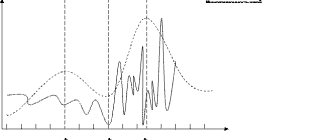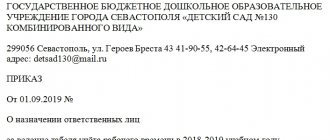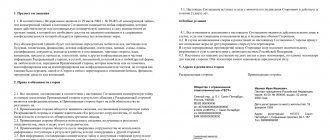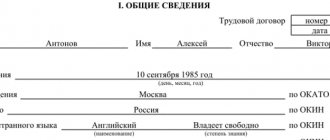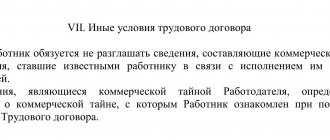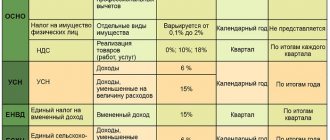What data has the status of personal?
Information related to a specific person represents personal data of an individual (subject of personal data), and is divided into four types :
- of a general nature (passport details, registration, date and place of birth, TIN, SNILS, telephone number, education, etc.);
- special purpose (race, nationality, state of health of the citizen, religion, etc.);
- biometric (fingerprinting, blood type, DNA);
- impersonal (not belonging to specific individuals, for example, the salary of a civil servant).
Composition of the employee’s personal data
Based on clause 2 of Art. 86 of the Labor Code of the Russian Federation, the volume and content of an employee’s personal data are determined by the employer in accordance with the Constitution of the Russian Federation, the Labor Code and other federal laws. As a rule, the activities of any organization require the employer to use two main types of documents in document flow:
- Documents that are provided by the employee when concluding an employment contract (Article 65 of the Labor Code of the Russian Federation). This category includes documents containing a photograph of the employee, full name, information about the place and date of birth, citizenship, marital status, place of registration, education, specialty (passport, insurance certificate of state pension insurance, military ID, etc.).
- Documents that are generated by the employer independently (primary accounting documentation for recording labor and its payment). This category includes orders or instructions on hiring an employee, terminating an employment contract, rewarding an employee, a personal card, and documents on remuneration.
Legislative regulation
The main regulatory framework consists of :
- Federal Law No. 152-FZ dated July 27, 2006 (as amended on December 31, 2017) “On Personal Data” ;
- Decree of the President of the Russian Federation of March 6, 1997 No. 188 “On approval of the list of confidential information” ;
- Methodological materials of Roskomnadzor, FSTEC and FSB of Russia;
- Code of the Russian Federation “On Administrative Offenses” - Code of Administrative Offenses of the Russian Federation;
- Labor Code of the Russian Federation;
- Criminal Code of the Russian Federation (Article 137 – on violation of privacy).
What is personal data from the point of view of the Criminal Code of the Russian Federation
According to paragraph 1 of Art. 3 Federal Law “On Personal Data” dated July 27, 2006 No. 152-FZ, personal data is any information that in one way or another relates to an individual and allows him to be identified. In other words, it can be anything - from a person’s last name to his anthropometric features.
By Decree of the President of the Russian Federation dated March 6, 1997 No. 188, information about the private life of a citizen is classified as confidential information and, therefore, is not subject to disclosure or unauthorized collection.
Criminal legal protection of this type of information is implemented in Art. 137 of the Criminal Code of the Russian Federation. The name of the norm allows it to be extended to all types of information about facts, circumstances and events in the private life of a citizen.
Thus, to the concept of “private life”, the inviolability of which is protected by Art. 137 of the Criminal Code of the Russian Federation, the following information about a person can be included:
- data directly about the person himself, including details of identification documents, information about the place of stay (residence) of the person and his home;
- information about relatives and other close people;
- information constituting another secret protected by law (information about deposits and accounts in credit institutions, about adoption, the content of telephone conversations, correspondence (including electronic), telegraph messages, the fact of drawing up and contents of a will, etc.).
In addition, this same category includes information classified as tax, lawyer, medical secrets, information received during confession (secret of confession). ConsultantPlus offers an interesting article about the categories of personal data for reading. You can obtain access to the ConsultantPlus system for free here.
Collection of such information, and especially disclosure without the consent of its owner, is possible only in cases expressly provided for by law. For example, as part of an investigation or consideration of a criminal case, during the execution of a court decision, etc.
In other situations, the collection and dissemination of data about private life is a direct violation of Art. 23–24 of the Constitution of the Russian Federation. A person who commits such a violation risks being subject to criminal prosecution.
To avoid accidentally disclosing someone else's personal data, please read the procedure for processing personal data.
Important! The disclosure of certain information classified as secret may be subject to other, narrower provisions of the Criminal Code of the Russian Federation. For example, liability for violation of the secrecy of adoption by an official obliged to maintain its confidentiality arises under Art. 155 of the Criminal Code of the Russian Federation.
In what case is the disclosure of personal data not dangerous from the law?
All personal data may be required by various authorities to which a citizen applies, for which consent to the processing of personal data in writing. Examples of organizations include:
- clinics that collect data about patients assigned to it;
- employers;
- travel and mobile operators;
- management companies;
- transport, insurance agents processing arrays of customer data.
What is personal data under the law?
Personal data is information relating to the identification of an individual who acts as a subject. Personal data is processed without violating the law. The main law regulating the protection of personal information is Federal Law No. 152 “On Personal Data,” which was adopted on July 8, 2006, and approved on July 14 of the same year. Also at this time, adjustments were made to Federal Law 152. Read more about this here:
Main provisions of the law:
St 2
Article 2 describes the purposes of this Federal Law. The main goal is to ensure the preservation of the rights and freedoms of a citizen of the Russian Federation and a person without citizenship or with foreign citizenship in the event of processing his personal information. This also applies to the inviolability of private, personal and family life.
St. 5
Article 5 describes the basic principles on which personal data will be processed. Personal information is processed and sorted lawfully. Processing is carried out only for specific and legitimate purposes. If the purposes of the processing are incompatible with reality, this action is prohibited by law.
Personal data is stored until the subject is identified, but no longer. The information is then destroyed or destroyed.
St. 6
Article 6 lists the conditions for the processing of personal data. Their processing is carried out in connection with:
- civil;
- constitutional;
- administrative;
- criminal proceedings.
Information can be processed when performing certain actions of federal executive authorities. Processing of information is required for the execution of an agreement to which the subject of personal data is a party or under which the subject will be a guarantor or beneficiary.
Also read: Federal Law 116 in the latest edition. More details here:
The processing of personal data is required to protect health, life and other important interests, if it is not possible to obtain the citizen’s consent.
St. 7
Article 7 describes the confidentiality of personal information. Operators or other persons who have received personal information are obliged to use it directly to serve this client and not transfer it to third parties, unless otherwise provided by law.
St. 11
Article 11 talks about biometric data. Biometric information can only be processed after the written consent of the citizen or individual. If the action takes place in accordance with an international treaty of the Russian Federation in connection with justice and the execution of judicial acts, the citizen’s consent to the processing of personal data is not required.
St. 13
State and municipal bodies use their official powers to create an information system or information database of personal data. Municipal and state institutions may take into account the peculiarities of processing personal data in information systems. The rights and freedoms of humans and citizens are not limited when processing personal data. The State Population Register is created precisely to ensure that the rights of subjects of personal data in connection with their processing and sorting are respected.
Signs of disclosure
Disclosure of personal data without the consent of the citizen is prohibited, and offenses can be classified according to the characteristics of their commission as follows :
- Illegal distribution of personal data by an official using his official position (for example, disclosure of a client’s secret by his lawyer);
- Disclosure of information concerning a minor and his relatives (parents, guardians, etc.) who are affected by it;
- Damage caused by disclosure of personal data, expressed in the form of moral, material harm , etc.
The first two points are regulated by Art. 137 of the Criminal Code of the Russian Federation, and prosecution is carried out taking into account direct or indirect intent.
Characteristic
Disclosure of personal data 137 of the Criminal Code of the Russian Federation is presented by the legislator in the form of collecting or disseminating information that affects a person’s private life. The collection is carried out illegally.
The application of this rule applies to cases where:
- information related to family secrets is collected or disseminated, or is of a personal nature;
- the victim did not consent to disseminate information;
- the distributor used the media.
The edition of the code provides that in this situation a penalty is applied to the perpetrator. The amount is set to 200 thousand rubles. The court's decision may be based on the income level of the offender. The period is fixed at 18 months. Art. 137 of the Criminal Code of the Russian Federation also provides for the use of mandatory work. The period is set at 360 hours. Correctional labor is established for 12 months.
As an additional measure, the perpetrator’s rights to hold a position or activity are limited. The period is three years. The crime is also punishable by arrest for 4 months or the guilty person is deprived of freedom for two years.
If a collector or other person took advantage of his official position to commit this offense, then the punishment will change upward. The Code of Administrative Offenses does not establish similar provisions. The fine increases and ranges from 100 to 300 thousand rubles. A violator may be deprived of the right to hold a position or activity. The period in this case varies from 2 to 5 years. Forced labor is applied for 4 years. In addition, the culprit can be arrested for six months or imprisoned for 4 years.
If the unlawful distribution is related to the use of the media, public speaking and other similar forms and affects the interests of a minor, then the provisions of Part 3 of the norm in question apply. It is worth noting that the information provided relates to a criminal case involving a child or reflects the suffering he received, which led to grave consequences. They can be expressed in mental or physical manifestations.
When the case is considered by the court, the perpetrator will receive penalties. Their size is set in the range from 150 to 350 thousand rubles. 137 of the Criminal Code of the Russian Federation, violation of privacy provides for the deprivation of the perpetrator of the right to occupy a certain position or activity. The legislator sets the period for this measure from 3 to 5 years. Compulsory labor is applicable, which is set for five years. The culprit is arrested for six months or imprisoned for five years.
Liability and fines
Punishment may be imposed depending on the circumstances of the offense.
For the first type of violation of confidentiality of personal data, the following are provided:
- fine up to 200,000 rubles. or equivalent wages up to 18 months;
- mandatory work for a period of up to 15 days ;
- corrective labor for a period of up to 1 year ;
- arrest for up to 4 months;
- imprisonment – up to 2 years.
Is it possible to take photos and videos in a store? Read here.
For offenses in accordance with paragraph 2 of Article 137 of the Criminal Code:
- fine up to 300,000 rubles;
- forced labor for up to 4 years;
- arrest up to 5 months ;
- imprisonment – up to 5 years .
for violations of Part 3 :
- fine up to 350,000 rubles. ;
- imprisonment (or forced labor) for up to 6 years ;
- arrest for six months .
Criminal liability does not arise for minor offenses that do not pose a danger to society.
What law regulates liability for the dissemination of personal data?
The illegal distribution of personal data has already been discussed above. There are two types of liability:
- administrative;
- criminal
As for distribution under administrative legislation, in this situation a more lenient liability is provided in the form of a fine or warning. Criminal liability involves the imposition of more stringent sanctions and restrictions.
In addition to administrative and criminal penalties, the law provides for disciplinary and civil liability. Disciplinary behavior, for the most part, entails negative consequences such as dismissal.
Civil liability involves the collection and compensation of damages caused. Compensation for moral damage caused is also allowed.
Administrative liability for processing personal data without consent, fines
This offense entails administrative liability. This is article 13.11 of the Code of Administrative Offenses of the Russian Federation. Depending on who exactly the violator is, different amounts of penalties are provided.
If a citizen violates the law, he is obliged to pay a fine to the state treasury in the amount of up to three thousand rubles . If these are legal entities - up to fifty thousand rubles. If the violation of the law came from an official, then an obligation arises to pay a fine of up to ten thousand rubles . Legal entities will have to pay up to seventy-five thousand rubles for violating the non-disclosure law .
https://youtu.be/fZi4gt2R6e4
There is no specific term “distribution” in the Code of Administrative Offenses, however, there are terms and concepts that indirectly affect illegal distribution.
Direct dissemination of personal information is disclosed under criminal law, as discussed below.
Criminal liability for violation of the law on personal data
One of the main articles protecting personal data is Article 137 of the Criminal Code of the Russian Federation . It provides for liability (punishment) for violating the inviolability of private (personal) life, which includes the illegal collection and dissemination of private information.
Here, liability may be applied in the form of a fine of up to 200 thousand rubles, as well as other measures of liability, including correctional, forced labor, arrest or imprisonment.
Another article that protects personal, private information is Article 140 of the Criminal Code . It regulates legal relations in the field of refusal to provide already collected private data of a person, when such provision is mandatory in accordance with the law. Here the subject of responsibility is the official. He may be subject to a fine of up to two hundred thousand rubles.
Thus, it is impossible to collect and process a citizen’s personal data without his consent. The receipt and transfer of such information must take place within the framework of the legislation of the Russian Federation on the protection of personal data. For offenders, illegal actions face both administrative and criminal liability.
Where to go?
If the confidentiality of personal data is violated, it is possible to contact several authorities to restore justice.
Roskomnadzor
You should complain to this organization about mobile operators, Internet providers, media and other companies providing communication services. You can do this in several ways :
- send an appeal through the online service (electronic reception);
- formalize the complaint in writing and submit it to Roskomnadzor in person or by mail, registered mail with notification.
Police
You should contact law enforcement agencies in order to bring the guilty person to administrative or criminal liability, as well as to establish the degree of his guilt.
Prosecutor's office
This body, which is supervisory in all areas of law, will consider the case and refer it to court.
submit documents as follows:
- by contacting the prosecutor's office at your place of residence ;
- send a complaint by mail - registered mail with notification;
- at a personal reception with the assistant prosecutor.
Court
The court considers cases where damage has been caused to a citizen whose personal data has been disclosed and for which he intends to compensate .
Employee personal data
In the civil legislation of the Russian Federation, there is a concept of personal data of an employee, which presupposes general information about an individual that is necessary for the employer in connection with the emergence of labor relations. Just like the protection of honor, dignity and business reputation, the protection of an employee’s personal data is regulated by the articles of the current Civil Code of the Russian Federation, and can be considered in several aspects:
- Guarantees are a set of rules and regulations that govern relations relating to an employee’s personal data.
- A set of organizational and legal measures aimed at implementing legislative acts in order to express the employer’s policy.
- Ensuring the employee’s subjective right to protect personal data.
Every employee has the right to protect their personal data (clause 9 of Article 86 of the Labor Code of the Russian Federation).
In accordance with Art. 89 of the Labor Code of the Russian Federation, each employee can exercise his right to the protection and protection of personal data through the following actions:
- free free access to your personal data, including obtaining a copy of any record containing the employee’s personal data;
- determining a personal representative to protect your personal data;
- obtaining complete information about personal data and their processing;
- issuing demands for the exclusion or correction of personal data containing incorrect information or if it was processed in violation of legal requirements;
- appealing in court against the employer’s unlawful actions, as well as his inaction in processing and protecting personal data.
Contents of the disclosure statement
The application is drawn up in any form, but if the offense results in criminal punishment, then it must be drawn up strictly according to the rules of the Civil Procedure Code.
It is necessary to refer to legislative acts and evidentiary documents.
The application must indicate the following information :
- applicant details;
- about the person or organization that disclosed personal data;
- description of the offense;
- evidence (photo and video confirmation, screenshots, correspondence, etc.).
You can download the application to Roskomnadzor on the dissemination of personal data here.
The more complete the evidence base, the higher the likelihood of defending your case with the help of the law.
Responsibility for violation of legislation on the protection of personal data of an employee
In connection with the collection of personal data of employees in the employer's organization, control over the legality of the actions of information owners is necessary.
Persons guilty of violating the rules governing the receipt, processing and protection of employee personal data bear disciplinary, administrative, civil or criminal liability in accordance with federal laws (Article 90 of the Labor Code of the Russian Federation).
Disciplinary liability for violation of norms l°59J regulating the processing and protection of employee personal data
A person who improperly handles the storage and preservation of such information may be subject to disciplinary action. It is possible to impose a disciplinary sanction on a person who is obliged to properly store and protect information relating to the employee’s personal data, but who, as a result of improper storage, allowed it to be damaged or lost.
Disciplinary liability is provided for by labor legislation (Articles 192-195 of the Labor Code of the Russian Federation). For committing a disciplinary offense, i.e. failure or improper performance by an employee through his fault of the labor duties assigned to him (including the obligation to comply with the established procedure for working with confidential information), the employer has the right to apply one of the provisions provided for in Art. 192 of the Labor Code of the Russian Federation of disciplinary sanctions in the manner established by Art. 193 Labor Code of the Russian Federation.
Disclosure of a secret protected by law (state, commercial, official or other) that has become known to an employee in connection with the performance of his job duties may result in termination of the employment contract (subclause “c” of paragraph 6 of Article 81 of the Labor Code of the Russian Federation). In addition, employees who disclose official or commercial secrets contrary to an employment contract may be required to compensate for the damage caused by this (clause 7 of Article 243 of the Labor Code of the Russian Federation).
In accordance with Federal Law dated July 31, 1995 No. 119-FZ “On the Fundamentals of the Civil Service of the Russian Federation,” a civil servant is obliged to comply with the established procedure for working with official information, keep state and other secrets protected by law, and also not disclose information that has become known to him in connection with performance of official duties, information affecting the private life, honor and dignity of citizens. For failure or improper performance by a civil servant of his duties, a disciplinary sanction may be imposed on him (Article 14): reprimand, reprimand, severe reprimand, warning of incomplete official compliance, dismissal.
According to the Decree of the President of the Russian Federation dated 01.06.98 No. 640 “On the procedure for maintaining personal files of persons holding public positions of the Russian Federation in the order of appointment and public positions of the federal public service”, federal civil servants authorized to maintain and store personal files (forming their copies) of the mentioned in the name of the Decree, persons may be held in accordance with the legislation of the Russian Federation to disciplinary and other liability for the disclosure of confidential information contained in the specified personal files, as well as for other violations of the procedure for conducting personal files established by this Decree (clause 7).
Administrative, civil and criminal liability for failure to comply with the established procedure for working with confidential information
An unlawful refusal to provide a citizen with documents and materials collected in the prescribed manner that directly affect his rights and freedoms, or untimely provision of such documents and materials, other information in cases provided for by law, or providing a citizen with incomplete or knowingly unreliable information shall entail the imposition of an administrative fine on officials persons in the amount of 5 to 10 minimum wages (minimum wage) in accordance with the Code of the Russian Federation on Administrative Offenses (Article 5. 39 of the Code of Administrative Offenses of the Russian Federation).
In accordance with Art. 13.11 of the Code of Administrative Offenses of the Russian Federation, which provides for liability for violation of the procedure established by law for the collection, storage, use or dissemination of information about citizens (personal data), an administrative penalty may be imposed. Violation of this norm entails a warning or a fine in the amount of:
- for citizens - from 3 to 5 minimum wages;
- officials - from 5 to 10 minimum wages;
- legal entities - from 50 to 100 minimum wages.
In accordance with Art. 13.14 of the Code of Administrative Offenses of the Russian Federation, disclosure of information with limited access by a person who has gained access to such information in connection with the performance of official or professional duties entails the imposition of an administrative fine in the amount of:
- for citizens - from 5 to 10 minimum wages;
- for officials - from 40 to 50 minimum wages.
The Civil Code of the Russian Federation provides for the protection of intangible benefits of citizens, including privacy, personal and family secrets, business reputation, etc. Accordingly, forms of civil liability are established in the form of monetary compensation for moral damage caused, the obligation to refute information discrediting honor, dignity or business reputation citizen (employee) (Articles 150, 151, 152 of the Civil Code of the Russian Federation), etc.
Particular attention should be paid to the criminalization of offenses in the field of working with personal data, in connection with which the Criminal Code of the Russian Federation provides for criminal liability:
- for abuse and illegal actions with information data about private life (Article 137 of the Criminal Code of the Russian Federation);
- for an unlawful refusal by an official to provide documents and materials directly affecting the rights and freedoms of a citizen, if these actions caused harm to the rights and legitimate interests of citizens (including employees) (Article 140 of the Criminal Code of the Russian Federation).
So, according to Art. 137 of the Criminal Code of the Russian Federation, illegal collection or dissemination of information about the private life of a person, constituting his personal or family secret, without his consent, or dissemination of this information in a public speech, publicly displayed work or in the media is punishable by a fine of up to 200 thousand rubles. or in the amount of wages or other income of the convicted person for a period of up to 18 months, or by compulsory work for a period of 120 to 180 hours, or by correctional labor for a period of up to one year, or by arrest for a period of up to 4 months.
If these acts were committed by a person using his official position, then according to Part 2 of Art. 137 of the Criminal Code of the Russian Federation is punishable by a fine in the amount of 100 thousand to 300 thousand rubles. or in the amount of wages or other income of the convicted person for a period of 1 to 2 years, or by deprivation of the right to hold certain positions or engage in certain activities for a period of 2 to 5 years, or by arrest for a period of 4 to 6 months.
Restrictions in the field of private detective activities and in the work of the federal security service
In accordance with the Law of the Russian Federation dated March 11, 1992 No. 2487-1 “On private detective and security activities in the Russian Federation” (hereinafter referred to as the Law dated March 11, 1992) for detective purposes in accordance with Art. 3 the provision of the following type of services is permitted:
- collection of information on civil cases on a contractual basis with participants in the process;
- market research, collecting information for business negotiations, identifying the phenomenon of uncreditworthy or unreliable business partners;
- establishing the circumstances of disclosure of information constituting a trade secret;
- clarification of biographical and other personal data about individual citizens (with their written consent) when they conclude employment and other contracts, etc.
According to Art. 5 of the Law of March 11, 1992, in the course of private detective activities, the actions of private detectives are permitted by oral questioning of citizens and officials (with their consent), making inquiries, studying objects and documents (with the written consent of their owners), etc.
When carrying out private detective activities, it is allowed to use video and audio recordings, filming and photography, technical and other means that do not cause harm to the life and health of citizens and the environment, as well as means of operational radio and telephone communications.
At the same time Art. 7 of the Law of March 11, 1992 established restrictions on the scope of activity of private detectives. Thus, they are prohibited:
- impersonate law enforcement officers;
- collect information related to the personal life, political and religious beliefs of individuals;
- resort to actions that infringe on the rights and freedoms of citizens;
- commit actions that threaten the life, health, honor, dignity and property of citizens;
- falsify materials or mislead the client;
- disclose the collected information, use it for any purpose contrary to the interests of your client or in the interests of third parties, etc.
The same article establishes that carrying out detective activities that violate the secrecy of correspondence, telephone conversations and telegraph messages, or associated with a violation of guarantees of the inviolability of the person or home, entails liability established by law. In this case we are talking, of course, about liability under Art. 137 of the Criminal Code of the Russian Federation, arising from liability for the disclosure of personal data, the protection and protection of which is provided for by labor legislation.
Corresponding prohibitions on the illegal collection, storage, processing, distribution of information related to an employee’s personal data, and liability for such actions are also established in other federal laws. Yes, Art. 6 of the Federal Law “On the Federal Security Service” dated 04/03/95 No. 40-FZ provides for the observance of the rights and freedoms of citizens by the federal security service in their activities. In particular, a person who believes that his rights and freedoms have been violated by the federal security service or their officials has the right to appeal the actions of these bodies or officials to higher authorities - the federal security service, the prosecutor's office or the court.
State bodies, enterprises, institutions or organizations, regardless of their form of ownership, as well as public associations and citizens have the right to receive explanations and information from the federal security service in the event of restrictions on rights and freedoms. The same subjects of legal relations have the right to demand from the federal security service bodies compensation for moral damage and compensation for material damage caused by the actions of officials of the federal security service bodies in the performance of their official duties.
Information about private life obtained in the course of the activities of federal security service bodies that affects the honor and dignity of a citizen or that can harm his legitimate interests cannot be communicated by the bodies of this service to anyone without the voluntary consent of the citizen, except in cases provided for by federal laws.
In the event of a violation by employees of FSB bodies of the rights and freedoms of man and citizen, the head of the relevant FSB body, a prosecutor or a judge are obliged to take measures to restore these rights and freedoms, compensate for the damage caused and bring the perpetrators to justice provided for by Russian legislation.
Officials of the FSB bodies who abused power or exceeded official authority are also liable under Russian laws, including under Art. 137 of the Criminal Code of the Russian Federation.
Unlawful refusal of an official to provide documents and materials collected in the prescribed manner that directly affect the rights and freedoms of a citizen, or provision of incomplete or deliberately false information to a citizen, if these actions caused harm to the rights and legitimate interests of citizens, according to Art. 140 of the Criminal Code of the Russian Federation entails a fine of up to 200 thousand rubles. or in the amount of wages or other income of the convicted person for a period of up to 18 months, or deprivation of the right to occupy certain positions or engage in certain activities for a period of 2 to 5 years.
In Art. 14 of the Federal Law of February 20, 1995 No. 24-FZ “On information, informatization and information protection” determines that citizens and organizations have the right to access documented information about them, to clarify this information in order to ensure its completeness and reliability, as well as have the right to know who uses or has used this information and for what purposes. Restricting access of citizens and organizations to information about them is permissible only on the grounds provided for by federal laws.
The owner of documentary information about a citizen is obliged to provide it free of charge at the request of those persons to whom it concerns. The refusal of the owner of information resources to a subject to access information about him can be appealed in court.
In Art. 5 of the Federal Law “On Operational Investigative Activities” dated August 12, 1995 No. 144-FZ defines the requirements for respecting the rights and freedoms of man and citizen when carrying out operational investigative activities.
Thus, a person whose guilt in committing a crime has not been proven in the manner prescribed by law (by the way, a crime can also be committed in the process of performing work duties), i.e. in respect of whom the initiation of a criminal case has been refused or the criminal case has been terminated due to the lack of in the act of corpus delicti, and who has facts of operational-search activities carried out against him and believes that his rights were violated, has the right to demand from the body that carried out the operational-search activities to provide information about the information received about him within the limits permitted requirements of secrecy and excluding the possibility of disclosing state secrets. If the requested information is refused or if the specified person believes that the information was not received in full, he has the right to appeal this in court.
During the consideration of a particular case in court, the responsibility to prove the validity of the refusal to provide information to a specific person, including in full, rests with the relevant body carrying out operational investigative activities.
In order to ensure the completeness and comprehensive consideration of the case, the body carrying out operational investigative activities is obliged to provide the judge, at his request, with operational documents containing information about the information the applicant was refused to provide, with the exception of information about persons embedded in organizational criminal organizations. groups, about full-time secret employees of bodies carrying out operational investigative activities, and about persons assisting them on a confidential basis.
If the decision of the body carrying out operational-search activities to refuse to provide the necessary information to the applicant is considered unfounded, the judge may oblige the said body to provide the applicant with the relevant information required by law.
An unlawful refusal to provide documents and materials in this case means a reluctance to provide information that affects the rights and freedoms of a citizen, contrary to laws and other regulations, despite the fact that the culprit has such information and was obliged to provide it.
As for the provision of incomplete information, this means that the interested person has not familiarized himself with all documents and materials that significantly affect his rights and freedoms, or not provided him with all the information that is of fundamental importance for the observance of his rights and legitimate interests.
Providing knowingly false information to an interested person means providing him with information that does not correspond to the information contained in documents and materials, which is reliably known to the person who provided such information.
Criminal liability for refusal to provide information to an interested person occurs if harm is caused to the rights and legitimate interests of a citizen. Such harm can be property (for example, in the form of a citizen’s lost wages) or moral (for example, in case of illegal dismissal or transfer to another job).
Responsibility of the person performing management functions
Responsibility for these crimes (Article 140 of the Criminal Code of the Russian Federation) lies with the official authorized to provide the citizen with relevant information.
The head of a commercial or other organization (of course, performing managerial functions) who is guilty of unlawfully refusing a citizen information affecting his rights and freedoms, in the event of causing significant harm to the rights and legitimate interests of citizens or an organization or legally protected interests of society or the state, is subject to liability under Art. 201 of the Criminal Code of the Russian Federation for abuse of power.
It should be emphasized that the crime is characterized by direct or indirect intent: the perpetrator realizes that he is unlawfully refusing to provide information to a citizen, foresees the possibility or inevitability of harm to his rights and legitimate interests and desires or consciously allows such harm to be caused or is indifferent to its occurrence.
Performing managerial functions in a commercial or other organization is a person who permanently, temporarily or by special authority performs organizational, administrative or administrative duties in a commercial organization, regardless of the form of ownership, as well as in a non-profit organization that is not a state body, a local government body, state or municipal institution. Organizational and administrative functions include, for example, team management, placement and selection of personnel, organization of labor or service of subordinates, maintaining discipline. Such responsibilities consist of making decisions that entail legal, organizational and other consequences and are subject to mandatory execution by other employees of a commercial or other organization.
Organizational and administrative functions may include the distribution of responsibilities between subordinates, ensuring working conditions and monitoring them.
The procedure for making organizational and administrative decisions is determined either by laws regulating the activities of organizations of a certain organizational and legal form (for example, Federal Law of December 26, 1995 No. 208-FZ “On Joint-Stock Companies”), or by-laws.
Administrative and economic functions may include the authority to manage and dispose of property and funds on the balance sheet and bank accounts of organizations and institutions, as well as performing other actions: making decisions on the calculation of wages, bonuses, monitoring the movement of material assets, determining the order of their storage, etc.
Administrative and economic responsibilities are recognized, which are also enshrined in regulations and consist in the implementation of powers to manage property.
According to Art. 272 of the Criminal Code of the Russian Federation, unlawful access to computer information protected by law, i.e. information on computer media, in an electronic computer (computer), computer system or their network, if this act entailed the destruction, blocking, modification or copying of information, is punishable by a fine of up to 200 thousand rubles. or in the amount of wages or other income of the convicted person for a period of up to 18 months, or by correctional labor for a period of 6 months to one year, or by imprisonment for a term of up to 2 years (Part 1). The same act committed by a group of persons by prior conspiracy or by an organized group or by a person using his official position, as well as having access to a computer, a computer system or their network, is punishable by a fine in the amount of 100 thousand to 300 thousand rubles. or in the amount of wages or other income of the convicted person for a period of one to 2 years, or correctional labor for a period of one to 2 years, or arrest for a period of 3 to 6 months, or imprisonment for a term of up to 5 years (h .2).
L.N. Anisimov, prof. Faculty of Law, Moscow State University of Civil Engineering, Art. Counselor of Justice, Honored Lawyer of the Russian Federation Source: Personnel Directory Magazine
Arbitrage practice
Cases from judicial practice suggest that the court can take either side depending on the completeness of the evidence base.
Disclosure of personal data by the bank
As evidenced by cases of judicial practice, when concluding loan agreements, citizens give their consent to the processing of personal data, a clause about which is present along with permission to distribute personal information transferred to the bank.
This gives the latter the right to transfer information about the borrower to collectors if arrears arise in loan payments.
In this way, the bank reduces its debt collection costs.
Disclosure of personal information by an official
Disclosure of personal data by an official is a criminal offense (Article 137 of the Criminal Code); as for administrative liability, at a minimum, the manager or other official may lose his position .
When signing a consent to processing during employment, it is necessary to clarify whether he specifically requires this information.
Disclosure of personal data. Object and subject of the crime
Criminally punishable disclosure of personal data encroaches on relations to ensure the right to privacy guaranteed by the Constitution of the Russian Federation.
At the same time, disclosure of personal data is punishable under Parts 1 and 2 of Art. 137 of the Criminal Code of the Russian Federation only on the condition that these data correspond to the description of the subject of the crime, namely:
- are information about private life;
- relate to family or personal secrets.
The definition of the concept of “private life” can be found in judicial practice, according to which private life (as opposed to public life) is recognized as the life activity of an individual in the sphere of interpersonal, family, intimate, everyday relationships that are not controlled by the state and society (definition of the Constitutional Court of the Russian Federation dated June 9, 2005 No. 248- ABOUT). In addition, for the purposes of civil law protection of private life, Art. 152.1 of the Civil Code of the Russian Federation determines that information about it is information about the personal and family life of a person, his place of stay/residence and origin.
The concepts of “personal secret” and “family secret” are evaluative. The science of criminal law interprets them as follows:
- personal secrets should include any fact of a person’s biography that he does not want to make public (state of health, affiliation with political movements, type of activity, financial situation, etc.);
- a family secret differs from a personal secret in the circle of bearers (information about intra-family relationships, the family’s lifestyle, living conditions, etc.).
Since 2013 Art. 137 of the Criminal Code of the Russian Federation has been supplemented with Part 3, which provides for a special subject - data indicating the identity of the victim in a criminal case under the age of 16, or a description of the moral and physical suffering received by such a victim. Data of this kind also refers to personal data, since it can be used to identify an individual.

